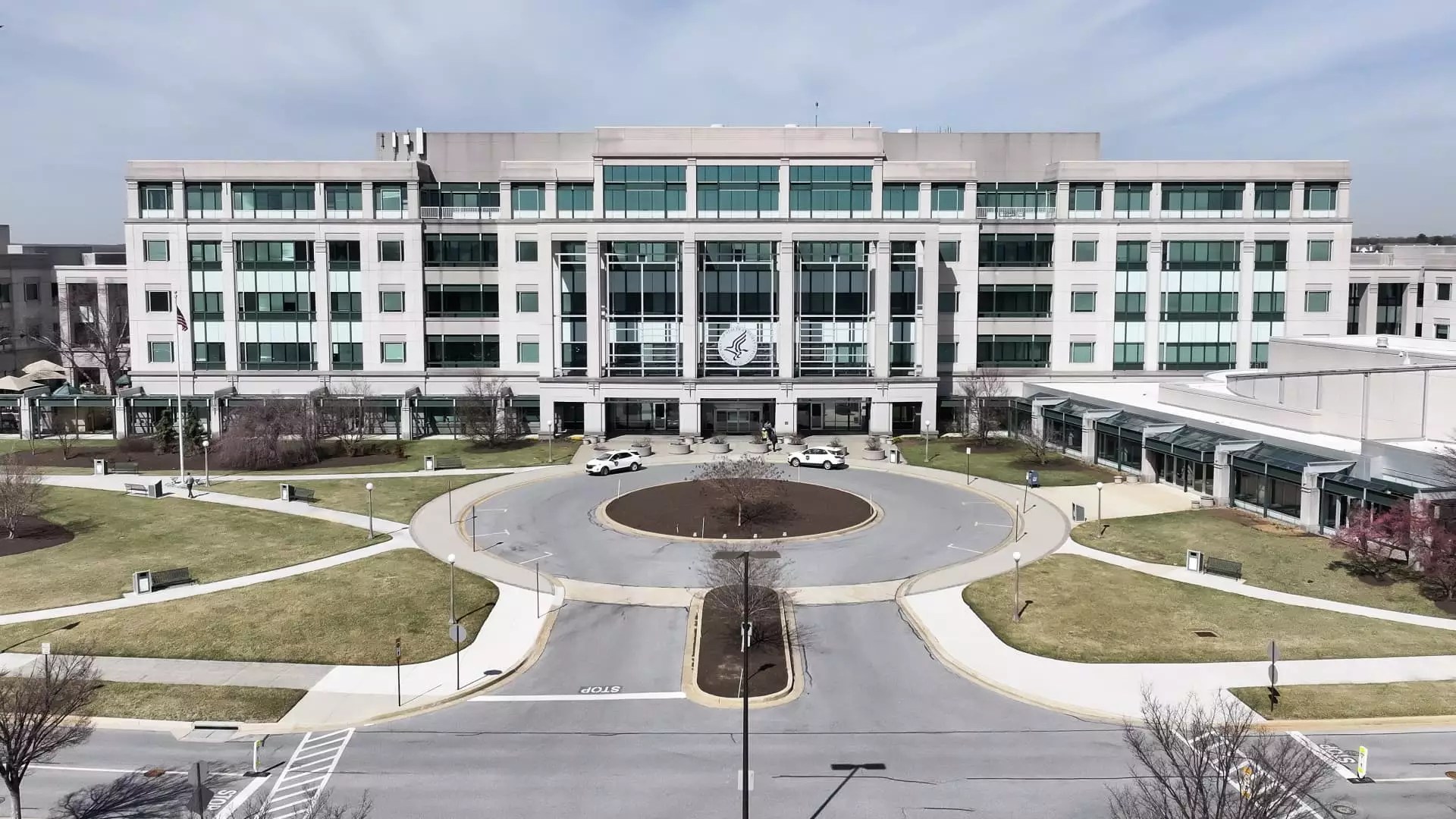In a move that has sent shockwaves through the public healthcare sector, the Centers for Medicare & Medicaid Services (CMS) has significantly downsized its workforce. With a staggering plan to eliminate 10,000 positions at the Department of Health and Human Services (HHS), Robert F. Kennedy Jr. has not only transformed the agency’s structure but also raised urgent concerns about the future of healthcare for millions of Americans. The cuts, which include the layoff of 300 CMS employees among others, signify a drastic approach to governance—one that prioritizes supposed efficiency over the foundational mission of ensuring public health and safeguarding vulnerable populations.
The recent virtual all-hands meeting led by CMS acting Administrator Stephanie Carlton illuminated the extent of these cuts. During this gathering, employees braced themselves for the fallout. What often accompanies such sweeping changes is a veil of uncertainty that erodes morale and disrupts the continuity of care for those who rely on these programs. The inevitable implications of such drastic measures reflect an administration willing to gamble with public health for the sake of efficiency—a troubling prospect for any citizen concerned about their healthcare needs.
Where Do We Draw the Line?
Kennedy’s restructuring raises questions about the wisdom of gutting the Office of Minority Health. This division plays an essential role in addressing healthcare disparities affecting marginalized communities across the nation. Eliminating or severely underfunding an office dedicated to health equity seems paradoxical, especially when society grapples with significant public health challenges. The timing could not be worse, with the U.S. battling a measles outbreak and reeling from avian flu threats. In this context, the office’s dissolved initiatives may leave countless individuals without necessary support and solutions that aim to eradicate healthcare inequities.
Carlton’s indication that “the painful part” of the cuts may be over does little to assuage concerns. There exists a thin line between making difficult organizational choices and sacrificing the future health of entire communities. The approach taken by the Kennedy administration appears to compromise care for expediency, reflecting a misalignment of priorities that neglects the moral and ethical obligations of the government. Even as claims of “streamlining” are bandied about, one cannot overlook the potential harm arising from making such sweeping reductions in crucial health-focused divisions.
The Flawed Premise of Efficiency
The rationale behind Kennedy’s job cuts is steeped in an ideology that champions efficiency over empathy, metrics over meaningful engagement. The administration’s insistence on cutting approximately 10,000 jobs during a time of severe public health risks does not merely disrupt functioning offices; it also jeopardizes the services and support systems crucial for the country’s most vulnerable populations. The speed and volume of layoffs indicate a brusque governance style that risks alienating practitioners and stakeholders who have a vested interest in effective healthcare delivery.
Furthermore, the criticism surrounding Dr. Mehmet Oz’s tacit endorsement of this agenda only adds fuel to the fire. With a background rife with controversial health claims, Oz’s appointment to lead CMS is symbolic of an administration that seems unconcerned with established medical principles. The overlap of celebrity and public health in this new era raises alarms about the credibility and accountability of the administration’s health policies. The integration of sensationalism into serious policymaking betrays a prioritization of appearances over substantive public good.
Consequences Beyond the Obvious
It is not just the systematic layoffs that deserve scrutiny but also the accompanying policy implications that will surely emerge. With the contraction of HHS’s workforce, vital work such as managing Medicare and Medicaid programs risks becoming compromised. Such reductions in capacity will inevitably lead to delays in processing claims and providing essential services for beneficiaries who depend on timely support.
The decision to forgo critical testing initiatives, like those for avian flu in dairy products and other foods, creates a significant risk to public health. As the U.S. navigates the tumultuous waters of infectious disease outbreaks, cutting vital public health initiatives in a sector already reeling from COVID-19’s aftermath is a glaring miscalculation. With a workforce depleted and responsibilities sidelined, the scalability of healthcare services becomes suspect.
This assault on foundational public health offices and programs appears to be more than a mere economic strategy—it’s a clear ideological stance that favors a detrimental drive toward marketized efficiencies over the compassion-driven mission of health equity, safety, and inclusiveness. The ramifications of these decisions will echo across American society, and as healthcare services diminish, the consequences on public trust may prove to be irreversible.


Leave a Reply